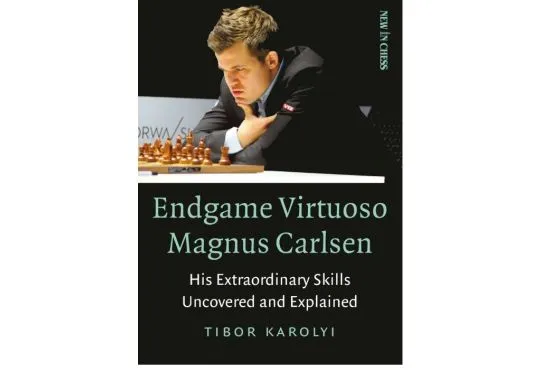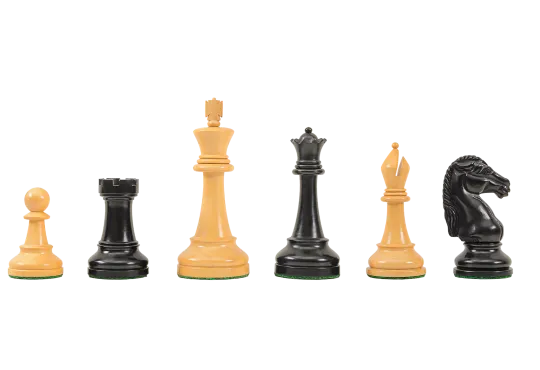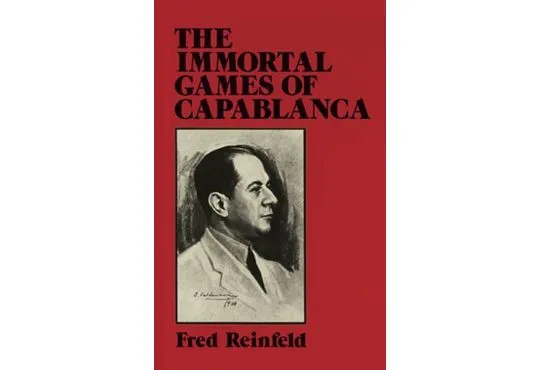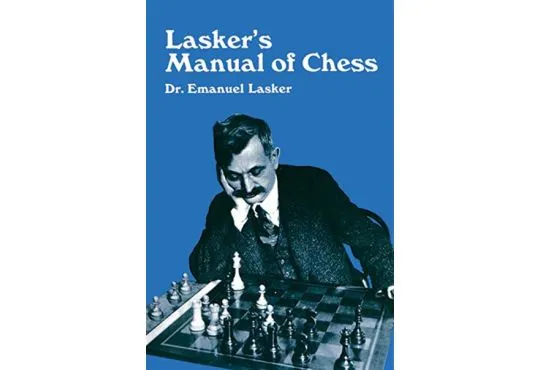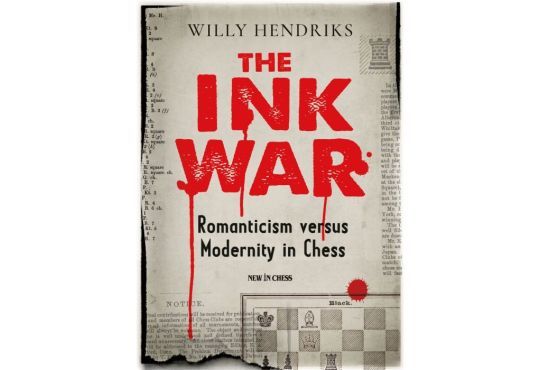The World Chess Champion: The Big Five
Very few people truly understand what it takes to rise to the pinnacle of the chess world and become world chess champion. Many people assume it's about innate talent and destiny, but it is about much more than that.
it's about the journey and the battles that shape the careers. The road to the top is rarely without its challenges, but these five masters fought their way to claim their titles and have become household names.
In this article, we will explore the lives of the five greatest world chess champions and take a deeper look into their lives.

Table of contents
The World Chess Champion: The Greatest 5
Who are the greatest World Chess Champions, and how did they win their titles?
So, let's look at some of the best chess legends, living, and past, who have claimed championship titles.
The Greatest World Chess Champion: Magnus Carlsen
Magnus Carlsen, a chess prodigy from Norway, showed talents beyond his years. He was solving 500-piece puzzles at the gentle age of two, and by five, his dad taught him chess. This was a good move since Carlsen is Arguably The GOAT (Greatest of All Time).
You probably first saw Magnus Carlsen during his iconic match with Garry Kasparov. While Kasparov was laser-focused on the board, young Magnus was casually walking around the room, checking out other players.
The stark contrast between Magnus's laid-back attitude, combined with his powerful performance, and Kasparov looking irritated, made people chuckle.
However, here is something you might not know: Magnus didn't love the game at first. He became competitive when he wanted to beat his older sister.

From that point on, the young player shot to prominence under the careful guidance of Grandmaster Simen Agdestein and coach Torbjørn Ringdal Hansen.
By 13, he earned his first Grandmaster title after dominating the C group at the Wijk aan Zee tournament in 2004.
He claimed his first World Chess Championship title in 2013, cementing his place as one of the greatest chess world champions.
His philosophy is simple and inspiring, “̌I have always believed in what I do on the chessboard, even when I had no objective reason to. It is better to overestimate your prospects than underestimate them.”
-
 Free Worldwide Shipping
The Magnus Carlsen Luxury Signature Casket & Chess Set Combination Enjoy Savings of 30% Off MSRP When Purchased as a Combination
Free Worldwide Shipping
The Magnus Carlsen Luxury Signature Casket & Chess Set Combination Enjoy Savings of 30% Off MSRP When Purchased as a Combination$479.00
Starting at $335.00
To $398.00
-
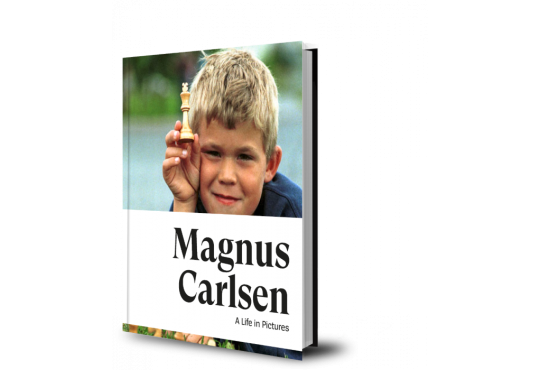 CLEARANCE - Magnus Carlsen: A Life in Pictures The story of the World Champion in more than 200 photosSpecial Price $5.00 Regular Price $29.95
CLEARANCE - Magnus Carlsen: A Life in Pictures The story of the World Champion in more than 200 photosSpecial Price $5.00 Regular Price $29.95
José Raúl Capablanca
By the time Capablanca was four, he was already besting his father in chess by pointing out his illegal moves. As you can imagine, it didn’t take long for people to notice that this kid from Havana had some serious talent. José Raúl Capablanca, born in 1888, defeated Cuba’s national chess champion, Juan Corzo, by 13 and became a hometown sensation.
Capablanca's innate understanding of the board amazed people, and his rapid chess moves made him a formidable opponent. Pretty soon, in 1921, Capablanca faced Emanuel Lasker, the legendary chess master for the World Chess Championship.
It seems he follows his own advice, “̌In order to improve your game, you must study the endgame before everything else."
He absolutely dominated the match, winning four games, which was astonishing.
He won the World Chess Championship title, and no one could touch him for years.
Do you know what’s even more incredible? He did not lose a single game for eight years, a record that still remains iconic in chess history. His style made him special - while other players relied on complex, sometimes daring strategies, Capablanca preferred the simple, elegant approach.

You can see his deep understanding of the game through his solid position play in each match. We love how Bobby Fischer praised Capablanca for his “light touch” on the board.
Capablanca met his match in 1927 when he took on Alexander Alekhine in the Buenos Aires World Chess Championship. The result shocked the chess world - Alekhine won the match and claimed the title.
Capablanca, stunned, requested a rematch, but Alekhine avoided him.
Though the end was bittersweet, Capablanca, after losing his title, continued to participate in chess tournaments, and his influence shaped the chess community.
Emanuel Lasker
Our list has to include the legendary Emanuel Lasker – if you grew up playing chess in the 90s, you have seen his name everywhere.
Born in Poland, Lasker’s chess journey began when his older brother, Berthold, introduced him to the game. Not only did he dominate the chess world for 27 years, he also changed the way people thought about the game.
Here’s something funny – his style made people believe he was playing “psychological tricks” on the board.
But, in reality, he was just ahead of his time!
Lasker was on a meteoric rise; from winning a major tournament at the German Chess Foundation in 1889 and earning the title of master. He was making waves in Europe by the age of 21.
At 25, he challenged Wilhelm Steinitz, the reigning World Chess Champion. The match took place in three different cities across North America. Lasker became the second-ever World Chess Champion. He defended his title two years later against Steinitz again, with an even greater win.

He could easily fend off challenges and happily remained the undisputed chess king for nearly three decades.
But wait — Lasker was a man of many talents.
Did you know that he earned a mathematics doctorate and contributed to commutative algebra?
He was a good friend of Albert Einstein, who once lamented, "How can such a talented man devote his life to something like chess?"
Lasker’s influence on chess and his ability to transform the game into a battle of wits are remembered today. His philosophy on chess, although simple, “When you see a good move, look for a better one," inspires chess players everywhere.
-
 Free Worldwide Shipping
The Library Collection - The Lasker Series Luxury Chess Pieces - 2.875" King
Free Worldwide Shipping
The Library Collection - The Lasker Series Luxury Chess Pieces - 2.875" KingStarting at $159.00
To $707.00
Wilhelm Steinitz
People say that when Wilhelm Steinitz lost to Lasker, he congratulated him and then sat down to play cards with his mates.
As you can tell, Steinitz wasn’t your typical chess player. In fact, he pretty much rewrote the entire game. He ended the “Romantic era” of chess, which heavily relied on sacrifices and aggressive tactics, with a more methodical, almost scientific approach.
Steinitz had a different approach - a slower, strategic approach, focusing on controlling the space and making safe, solid moves.
He knew what he was doing even though this move wasn’t popular at first.
His opponents and spectators called it “boring” and even “cowardly,”. But that’s precisely when he’d outmaneuver his opponent and launch attacks when least expected.
In his spare time, he analyzed the game, broke it down, and worked on his thesis. His rival, Johannes Zukertort, went toe-to-toe with him on his games and his theories. People quickly dubbed it the “Ink War” as their battle spilled into chess tournaments, matches, and even magazines.
Emanuel Lasker eventually came for his World Chess Champion title, but Steinitz didn’t go down easily. Their 1894 and 1896 matches were fierce. asker, who was 32 years younger, showed Steinitz that he had met his match.
Although Steinitz lost both matches, the chess community never forgot his guidance, theories, and influence. His methods and the way he changed the chess mindset - from a flashy game to a more strategic, patient one, was a game-changer.
-
 CLEARANCE - Endgames of the World Champions - From Steinitz to Spassky - Karsten Müller - Vol. 2Special Price $15.00 Regular Price $33.95
CLEARANCE - Endgames of the World Champions - From Steinitz to Spassky - Karsten Müller - Vol. 2Special Price $15.00 Regular Price $33.95
Alexander Alekhine
While Wilhelm Steinitz is regarded for his calm, calculating, and patient chess style. There is one World Chess Champion revered for his unparalleled attacking style and tactics.
Alexander Alekhine challenged José Raúl Capablanca for the World Chess Championship title in 1927. People considered Capablanca unbeatable, but he lost his championship title to Alekhine in Buenos Aires. Alekhine came armed with aggressive strategies and brilliantly summoned combinations where other grandmasters saw nothing.
The match between Capablanca and Alekhine remains one of his most celebrated achievements. Since Capablanca suffered his first defeat in two decades at the hands of Alekhine.
Alekhine carefully studied his opponent’s games and came prepared with an arsenal of complex strategies formulated to take down Capablanca.
Chess legend Bobby Fischer once said, “He played gigantic conceptions, full of outrageous and unprecedented ideas. He could see more deeply into a situation than any other player in chess history.”

One of his rivals, Rudolf Spielmann, once commented, “I can comprehend Alekhine’s combinations well enough; but where he gets his attacking chances from and how he infuses such life into the very opening – that is beyond me.”
Even though Alekhine had successfully defended his title twice, younger talents like Paul Keres and Mikhail Botvinnik began to rise. Unfortunately, Alekhine struggled with alcohol, especially after his loss to Max Euwe, which affected his performance.
He never gave up and proved, once again, that he remained a force to be reckoned with when he regained his title two years later.
Though his life may have been a mix of ups and downs, with rumors surrounding his death, his alleged association with Nazi propaganda, and political controversies, his legacy remains intact.
His chess theory, Alekhine’s Defense, continues to be widely used today.
-
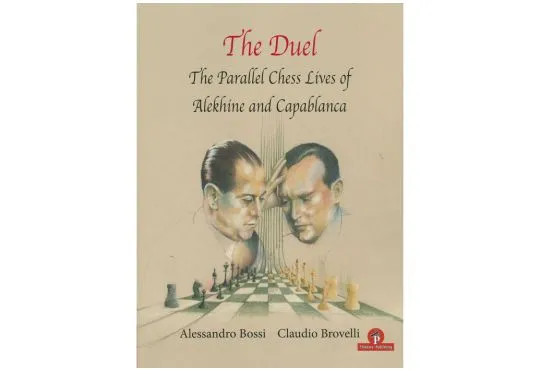 CLEARANCE - The Duel – The Parallel Lives of Alekhine and CapablancaSpecial Price $15.00 Regular Price $38.95
CLEARANCE - The Duel – The Parallel Lives of Alekhine and CapablancaSpecial Price $15.00 Regular Price $38.95
Final Thoughts
Chess, as you know, requires patience, critical thinking, genius, strategy building, and, dare we say it, luck. We will undoubtedly witness new chess prodigies and champions emerge in the upcoming years. But nothing can take away or replace the legacy, guidance, and game-changing strategies left behind by some of the greatest World Chess Champions.


